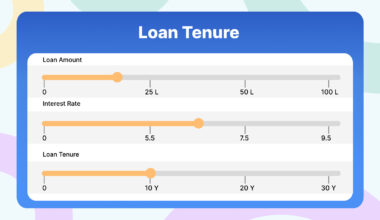Loans are financial tools that cater to various needs, from setting up a home to funding education or addressing medical emergencies. However, understanding the repayment terms and conditions, including the implications of part-payment, pre-payment, and pre-closure, is crucial for effective financial management.
This comprehensive blog aims to help you understand these concepts and how they impact your loan repayment journey.
Pre-Payment of a Loan
Pre-payment is a facility that allows borrowers to repay their loan, either partially or fully, before the end of the loan tenure. This option enables borrowers to make early repayments, potentially reducing the overall interest paid and shortening the loan term.
Benefits of Pre-Payment:
- Interest Savings: By making pre-payments, borrowers can save a considerable amount of interest over the loan term. The early repayment reduces the outstanding principal, leading to less interest accruing on the remaining balance.
- Loan Tenure Reduction: Pre-payment can shorten the loan tenure, enabling borrowers to become debt-free sooner than the original loan term.
Types of Pre-Payment:
- Partial Pre-Payment (Part-Payment): This type of pre-payment involves repaying a portion of the outstanding loan amount. Borrowers can make multiple partial pre-payments based on their financial capacity, which can lead to more interest savings.
- Full Pre-Payment (Foreclosure or Pre-Closure): Full pre-payment refers to settling the entire remaining principal amount in one payment. It allows borrowers to close the loan account ahead of schedule and achieve complete debt freedom.
Things to Consider:
- Pre-Payment Timeframe: Most banks permit pre-payment of the outstanding principal amount after one year. Before planning any pre-payment, borrowers should check their loan agreement for the specific terms and conditions regarding pre-payment eligibility.
- Pre-Payment Charges: Some lenders may impose pre-payment charges, especially for full pre-payment (foreclosure). Borrowers should be aware of any fees associated with making early repayments and consider whether the benefits outweigh the charges.
Part-Payment of a Loan
Part-payment is a beneficial option for borrowers who want to pay off their loans faster. It involves depositing a sum of money into the loan account, but not the entire outstanding amount. This reduces the remaining principal, resulting in lower Equated Monthly Installments (EMIs) and less interest to be paid.
Benefits of Part-Payment:
- Reduce Interest Burden: By making a part-payment, you lower the outstanding principal, which in turn reduces the interest you have to pay over the loan term. This can save you a significant amount of money in the long run.
- Flexibility to Save: You have the flexibility to make part-payments based on your financial capability. Whether it’s a one-time significant sum or multiple smaller payments, each part-payment brings you closer to paying off your loan.
- Freedom to Choose: Depending on your financial situation, you can decide when and how much to part-pay. This puts you in control of your loan repayment and lets you adapt it to suit your changing circumstances.
Things to Consider:
- Pre-Payment Charges: Check with your lender if there are any pre-payment charges associated with part-payments. Sometimes, the charges can outweigh the benefits of making smaller part-payments.
- Loan Type Restrictions: Be aware of any restrictions on part-payment, especially for personal loans. Some loans may have lock-in periods or limits on the part-payment amount, so it’s essential to understand the terms before proceeding.
Pre-Closure of a Loan
Pre-closure, also known as foreclosure, is the act of settling the remaining principal amount of a loan in one payment before the loan term concludes. By doing so, borrowers can significantly decrease the interest burden and close the loan account ahead of schedule.
Benefits of Pre-Closure:
- Interest Savings: Pre-closure helps borrowers save a substantial amount of money on interest, as the loan term is shortened, reducing the time for interest to accumulate.
- Debt Freedom: Closing the loan early enables borrowers to become debt-free sooner, providing financial peace of mind and increased flexibility with their finances.
Things to Consider:
- Pre-Closure Balance Calculation: To initiate pre-closure, borrowers must submit a request to the relevant bank or financial institution. The lender calculates the pre-closure balance by considering the outstanding dues, the remaining loan term, and the accrued interest.
- Pre-Payment Charges: Before proceeding with pre-closure, borrowers should check if there are any pre-payment charges imposed by the lender. Some lenders may charge fees for early repayment, which can impact the overall savings.
Also Read: Step-by-Step Guide for Personal Loan Balance Transfer
Differences Between Part-Payment, Pre-payment, and Pre-Closure of a Loan
| Method | Definition | Effect on Principal Amount | Effect on EMIs | Effect on Interest Rate | Elimination of Future EMIs |
| Part-Payment | Involves paying an amount less than the entire outstanding principal:It reduces the principal amount, leading to lower EMIs and total interest over the loan tenure. | Decreases | Decreases | No change | No |
| Pre-payment | Can be partial or full:It reduces the principal amount. It may also result in a reduced interest rate based on loan terms. | Decreases | Potential reduction | No change | Depends on whether the payment is partial or full |
| Pre-Closure | Entails complete repayment of the remaining principal amount in a lump sum before the loan’s scheduled maturity date:It eliminates future EMIs and closes the loan account early. | Complete elimination | Complete elimination | No change | Yes |
Impact on Credit Rating
- Pre-payment can impact your credit score. By reducing or eliminating your debt ahead of schedule, you demonstrate responsible credit behaviour and lower your credit utilisation ratio, both of which can improve your credit score.
- Part-payment has a minimal impact on your credit score. It reduces the total loan amount and interest, easing loan repayment. However, the effect on your credit score is not significant as the loan account remains active, and regular repayments continue.
- Pre-closure can have a substantial positive effect on your credit score. By completely repaying your debt before the loan term ends, you significantly reduce your credit utilisation ratio and exhibit strong financial management, boosting your credit score.
Also Read: Simplify your Loan Repayment with Paytm’s EMI Options
Key Takeaway
While loans serve as a lifeline during financial needs, understanding the repayment options can help manage the loan effectively. Pre-payment, part-payment, and foreclosure facilities allow borrowers to reduce their debt earlier and save on interest. However, it’s crucial to consider any charges or penalties associated with these options to ensure they are beneficial in the long run.








